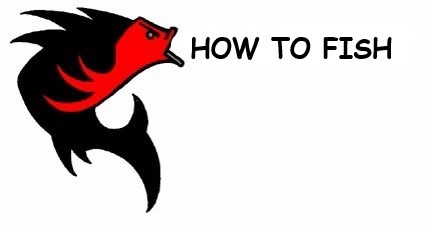Slowly but surely technology is replacing steam craft and fishing technique.
Pretty soon all you’ll have to do is take a bag of gadgets to your favourite fishing spot, set em up, and let them do all the work of catching fish…..while you sit in the sun and sip on a cool drink.
….well, it might be a while before it gets that simple but new technology can help your chances of finding fish…so it’s worth checking this stuff out…
….and, notice I did say “finding” fish not “catching” fish!
Talk to any boat angler with a fish finder and they’ll tell you finding fish and catching fish are two different things.
The “little fishies” are down there but they might not be feeding….so there are no guarantees to going home with dinner just ‘cos you know where they’re hiding.
Any way… locating fish puts you a lot closer to being able to hook them, and that’s where electronic fish finders are real useful.
These things have been used by commercial anglers for decades and recreational boat anglers have had them for a long time too….
Now, bank anglers are getting in on the act as the technology gets a lot cheaper and companies are building stuff that can be used without a boat.
The latest hand held fish finders are pretty basic. You can buy both wired and wireless models and some use a Bluetooth connection to your phone.
The simplest and cheapest types are a small hand held display unit with a floating transducer (sonar reader that checks for objects in the water) connected by ten or more meters of wire. You just chuck the transducer into the water and it tells you how deep it is, what’s on the bottom and if there’s any fish about….pretty basic!
The cheapest models are not always that accurate…they mistake rocks for fish, don’t always get the depth right and are limited by the length of the connection wire.
The cheaper models can only check ten meters of water….but I have used these models and still found they help me locate and catch fish in small rivers.
The stuff that’s really making a difference now are the range of wireless fish finders. These things use a wireless connection to a hand held unit, or your phone, and give readings out to thirty metres.
They can give you lot of data about the layout of the bottom, whether there’s weed, gravel or mud and show the different sizes of fish.
The thing about wireless finders is you need a strong rod and line to cast out the transducer, especially if you’re gonna belt it out 30 metres….I read of one guy who had to go for a little swim to save his transducer after the line broke when he cast out.
Some “purist” anglers don’t like fish finders….they reckon it takes away from the sport! On the other hand I don’t know a boat angler who doesn’t one so it seems most “boaties” disagree.
Anyway, it’s a decision you have to make….
…anything that helps me catch fish is a bonus in my book!
Fish finders do have limitations…
They’re good on lakes where you have still water and can cast to different spots in calm water and slowly wind them in. This gives you the best reading.
But….fast moving rivers, choppy water, the surf and high winds all stuff up the reading or loose wireless connection….so you get no information back.
You gotta’ pick the right water to get the best use.
When it comes to price, like most things, you get what you pay for. The expensive stuff is usually better than the cheap stuff and it’s always a good idea to read product reviews before you buy.
The other thing is actually catching fish….fish finders don’t guarantee this!
Bass anglers in the US have become expert in using finders to locate fish….and any tournament bass angler will tell you there can be a truckload of fish but they don’t always feed….
You’ve still got to know how to present a natural looking bait or lure, how to rig up properly and how to stimulate the fish to bite.
As fish finders for bank anglers improve – the units will get better and cheaper.
Adding a unit to your tackle bag can be just another way of increasing the odds of catching a fish when you go out….and if you have limited time like me ….it could be a good investment!
